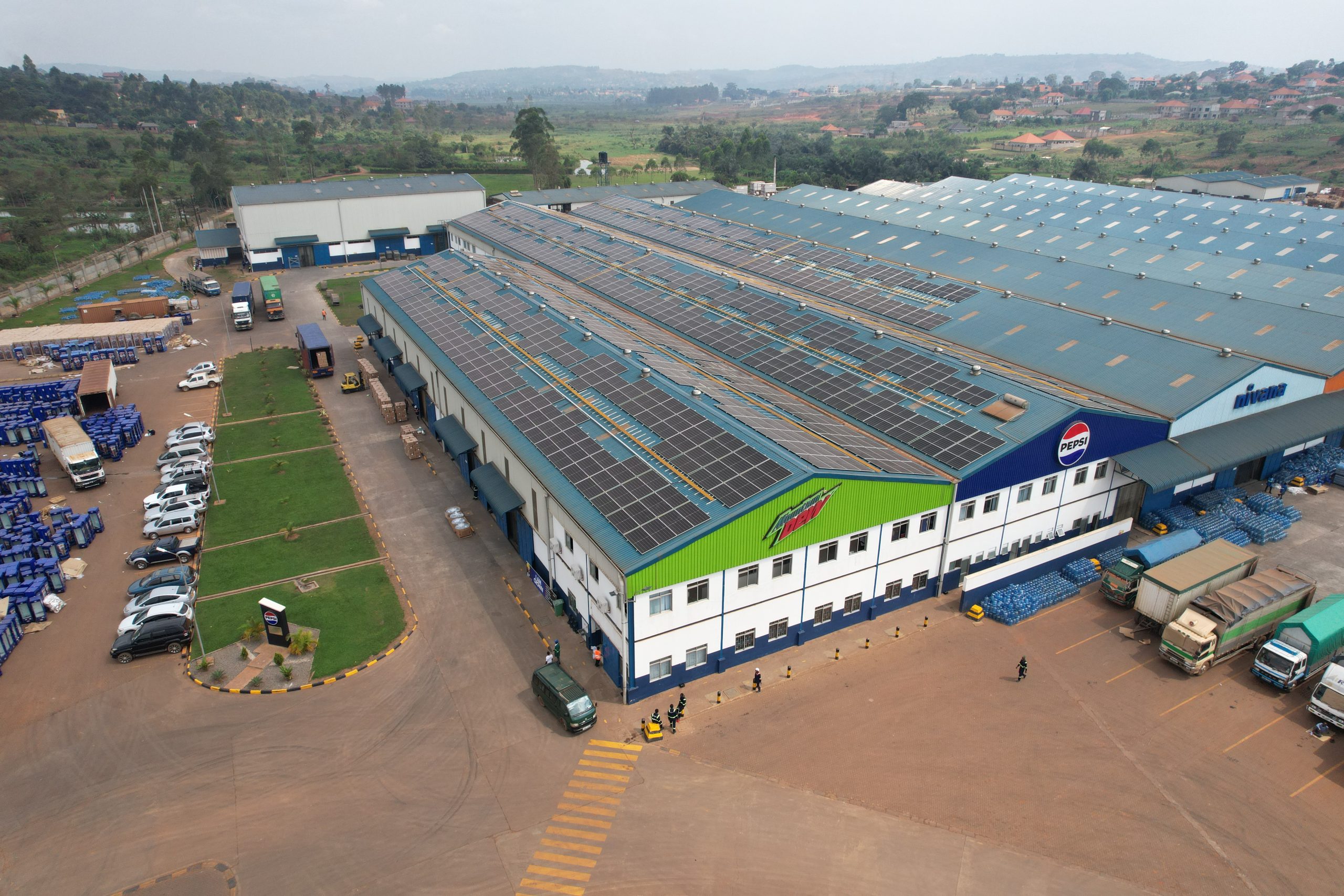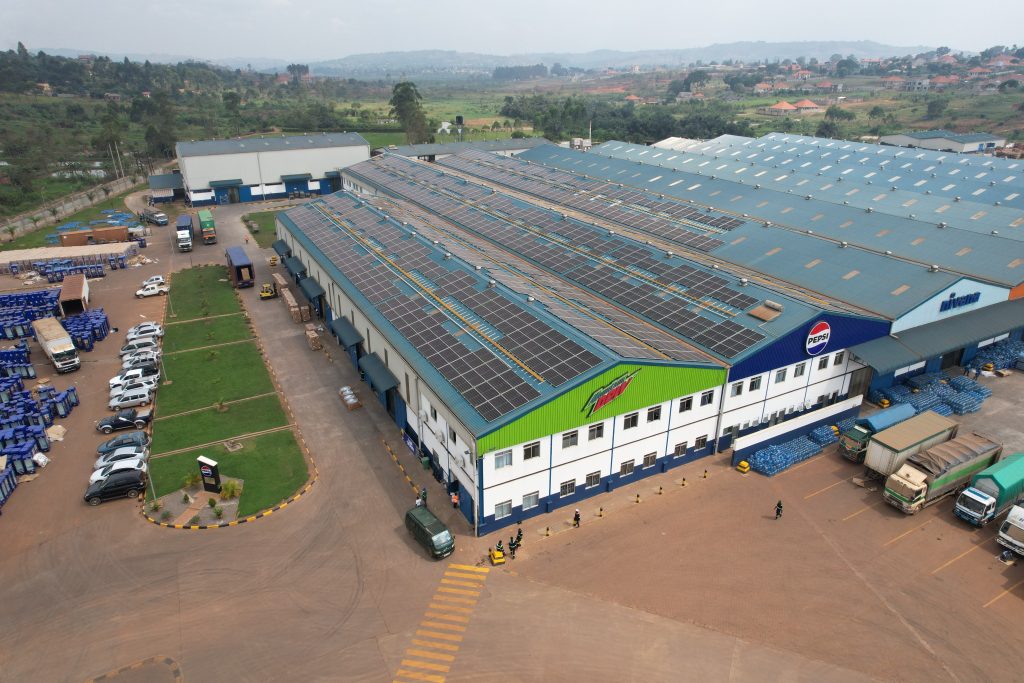
02 Jul How Solar Power Builds Long-Term Profit and Sustainability
In a world of rising energy costs and tightening environmental regulations, businesses are under pressure to rethink how they consume power. More than ever, companies are searching for energy solutions that are not only cost-effective but also future proof. Solar power stands out as one of the most effective tools for achieving both long-term profit and sustainability.
This article breaks down how solar power delivers financial returns while supporting environmental goals, why it’s a smart strategic investment, and how industrial-scale solar solutions are transforming the energy landscape, particularly for businesses across Africa.

The Cost Burden of Traditional Energy
Electricity bills are one of the largest recurring expenses for energy-intensive industries. Whether it’s manufacturing, processing, or cold storage, power usage is often continuous and expensive. In many regions, especially those with unreliable grids, businesses also rely heavily on diesel generators, which further escalates operating costs.
Fossil-fuel-based power isn’t just expensive, it’s volatile. Global fuel price fluctuations, tariff hikes, and unplanned outages can make long-term budgeting nearly impossible. Solar power, by contrast, offers a stable, predictable, and scalable solution.
Solar Power as a Financial Investment
While some still view solar power as an environmental initiative, its financial case is equally strong. Here’s how solar builds long-term profit:
1. Reduced Energy Bills
By generating your own electricity, you rely less on the grid or generators. Depending on system size and energy patterns, solar can reduce power bills by 30–70%.
2. Fixed Energy Costs
Unlike grid electricity or fuel, the cost of solar doesn’t change. Once the system is installed, the energy it produces is essentially free. This allows for more predictable cash flow and easier financial planning.
3. Fast Payback Period
Industrial solar systems today offer payback periods of as little as 3 to 5 years, depending on incentives and usage. With a 25-year lifespan, that translates into decades of pure savings.
4. Increased Asset Value
Properties with solar installations are more valuable. For industrial and commercial facilities, this makes your business infrastructure more attractive to investors and buyers.
5. Access to Carbon Finance and Green Funding
As ESG (Environmental, Social, and Governance) reporting becomes more important, companies using clean energy often qualify for carbon credits or sustainability-linked financing.
Supporting Long-Term Sustainability Goals
In addition to profit, solar power directly supports broader sustainability and climate objectives.
1. Reduced Emissions
Every megawatt-hour generated from solar avoids hundreds of kilograms of CO₂. For companies aiming for net-zero, solar is one of the easiest ways to reduce Scope 2 emissions.
2. Improved Corporate Image
Adopting clean energy enhances your brand’s reputation. More consumers, partners, and governments now expect companies to operate responsibly.
3. Regulatory Compliance
As more governments set emissions targets, solar positions you ahead of potential compliance requirements, avoiding penalties or forced upgrades later.
4. Resilience Against Grid Failures
Hybrid solar systems that integrate battery storage or generators ensure uninterrupted operations even during outages, essential for industries like healthcare, manufacturing, and logistics.
Is Solar Power Right for All Businesses?
While solar is broadly applicable, it’s particularly impactful in:
- Regions with high grid tariffs or unstable electricity supply
- Industries with steady daytime power usage (e.g., factories, cold storage, agribusiness)
- Large rooftops or open land suitable for panel installation
- Businesses planning long-term presence at their current location
An energy audit can quickly determine solar viability. This includes analyzing usage patterns, space availability, and current power costs.
A Quick Note About Us – Spenomatic Solar
At Spenomatic Solar, we’ve had the privilege of helping dozens of industrial and commercial clients unlock long-term savings and sustainability with customized solar systems.
What makes our approach effective is simple: we understand industry. From manufacturing plants to tea factories, we design systems that work with existing infrastructure, reduce generator dependency, and deliver measurable results, fast.
We offer turnkey solutions, including energy audits, design, installation, maintenance, and even financing options like Power Purchase Agreements (PPAs). Our mission isn’t just to sell solar, but to empower African industries to grow sustainably.
If you’re unsure about whether solar makes sense for your operations, we’re here to help with expert insight and zero-pressure guidance.
Debunking Common Solar Myths
Many businesses hesitate to adopt solar due to common misconceptions:
Myth 1: Solar only works when it’s sunny.
Fact: Solar panels generate power even on cloudy days. The output may vary, but modern systems are designed to work efficiently under diverse conditions.
Myth 2: Solar is too expensive.
Fact: With falling panel costs and available financing, solar has become accessible to most medium and large businesses, even with zero upfront investment.
Myth 3: It’s hard to maintain.
Fact: Solar systems require minimal maintenance. Most issues can be prevented with simple periodic cleaning and monitoring.
Planning for the Long Term
The real power of solar lies not just in the savings seen today, but in the strategic position it builds for tomorrow. Businesses that invest in solar power now are protecting themselves from future price hikes, fuel shortages, and regulation shifts. They’re also aligning with a global movement toward low-carbon, energy-resilient operations.
For investors, partners, and even customers, solar power signals foresight, responsibility, and leadership.
Final Thoughts
Profitability and sustainability are no longer opposing goals. Thanks to solar power, businesses can achieve both, at the same time. With the right strategy, solar is more than an energy source; it’s a long-term growth asset.
Whether you’re looking to cut power bills, improve ESG performance, or prepare for future regulations, solar offers a proven, reliable, and financially sound path forward.
We believe in this not just because we install systems, but because we see the results every day in the businesses we work with.
If you’re thinking about solar, now is the time to act. The sun won’t send you a bill.
Quick FAQs
1. How much money can a business save with solar power?
Depending on size and setup, savings can range from 30% to 70% on monthly energy bills.
2. What is the payback period for a commercial solar system?
Most systems break even within 3–5 years, with over 20 years of savings afterward.
3. Can solar power fully replace grid electricity?
In many cases, yes. Hybrid systems can supply full daytime loads and backup power, reducing or even eliminating grid dependency.
4. Is solar suitable for small businesses?
Yes, though impact is greatest for those with high daytime energy use or large operational spaces.
5. What happens on cloudy days or at night?
Systems either draw from the grid, stored battery power, or integrated generators to ensure continuous supply.


Sorry, the comment form is closed at this time.